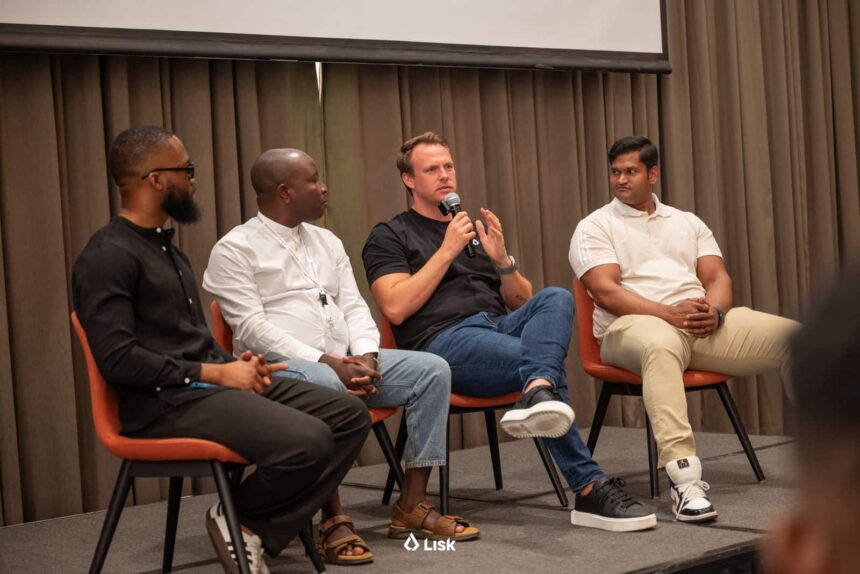Africa’s blockchain founders are coming to a crucial realization: branding their ventures as “Web3” may deter local investors. While the blockchain ecosystem on the continent is experiencing growth, traditional investors still view this space as precarious due to uncertainties surrounding the technology.
At a recent gathering in Nairobi titled ETHSafari 2025, industry experts, including Gideon Greaves from the blockchain platform Lisk and Brenton Naicker from CV VC, emphasized the importance of focusing on the specific problems founded businesses aim to solve rather than the blockchain technology itself.
Naicker noted a significant shift in the mindset of founders, stating, “There’s no such thing as a blockchain business.” He highlighted the need to be clear about the nature of the startup, whether it is agritech or fintech, despite leveraging blockchain’s efficiency. He presented examples of startups like Jamit, addressing the creator economy, and Afrkabal, focused on agriculture. Both utilize blockchain as a tool for real-world issues rather than as a primary selling point.
The panel discussion, which included Michael Lawal from AyaHQ, spotlighted how emphasizing blockchain in pitches can alienate traditional investors. Naicker cautioned, “The moment you say ‘I’m building a blockchain business,’ you cut off that entire segment of traditional investors.” This sentiment reinforces the idea that the technology’s relevance diminishes if solutions effectively meet the market’s needs.
The challenges extend beyond founders, with venture capitalists (VCs) also encountering hurdles when dealing with limited partners (LPs) who fund their operations. Naicker pointed out that LP sentiment remains shaky. Greaves amplified this concern, explaining that LPs often perceive blockchain as a volatile asset class, making them hesitant to commit financially for extended periods.
Despite these barriers, Naicker and Greaves observed that Web3 startups that address tangible problems can experience growth comparable to their Web2 counterparts. Greaves stressed that not every venture necessitates a token, and blockchain may increasingly function as an underlying framework that benefits the chief value proposition.
The two experts urged a strategy shift in communications. Rather than leading with blockchain technology, founders should concentrate on articulating solutions. “If you start a conversation around doing an educational session about blockchain, it is very unlikely you’re going to convert,” Naicker advised.
However, there are contexts where highlighting blockchain technology remains beneficial, particularly when engaging potential investors who are already knowledgeable about Web3. In the early stages of funding, it may be more effective for startups to seek connections with VCs who specialize in this domain.
Some entrepreneurs have articulated the importance of the blockchain label when appealing to global markets. Naicker noted that international investors often lack local context and usually wait until a startup reaches Series A funding before considering investment. In these cases, investors might inadvertently overlook promising projects if they do not recognize blockchain’s role.
Lawal echoed this, advocating for a dual approach where founders first address African problems before expanding their focus globally. “You’re first an African solving an African problem, but then exporting that solution to the global stage,” he explained, emphasizing the necessity of relevant local knowledge.
Looking forward, Greaves and the Lisk team envision a future where blockchain’s potential is harnessed to tackle concrete challenges. Their commitment is reflected in their backing of ventures like LoveCash, which manages informal trade in South Africa’s fast-moving consumer goods sector through blockchain, without requiring users to engage with cryptocurrency directly.
As this “Web3 in the real world” trend continues to flourish, companies such as Zone and Juicyway are innovating payment systems and facilitating cross-border transactions through blockchain technology. The discussions and insights shared at ETHSafari indicate that future success may lie not with those targeting Web3 enthusiasts, but with those integrating blockchain into everyday solutions in Africa.







